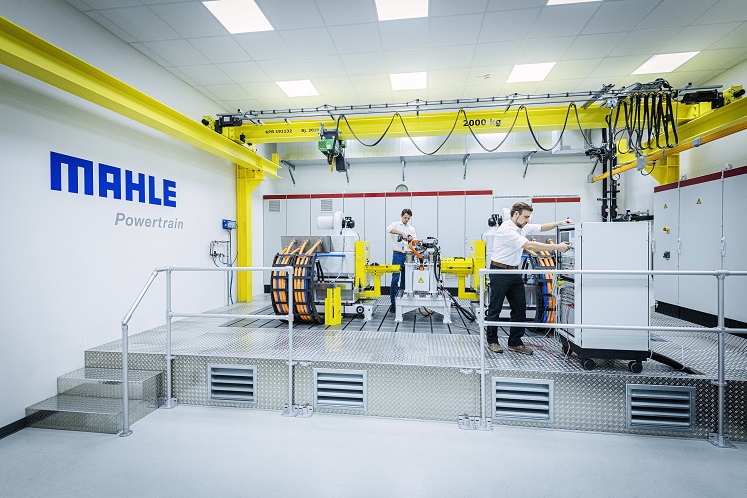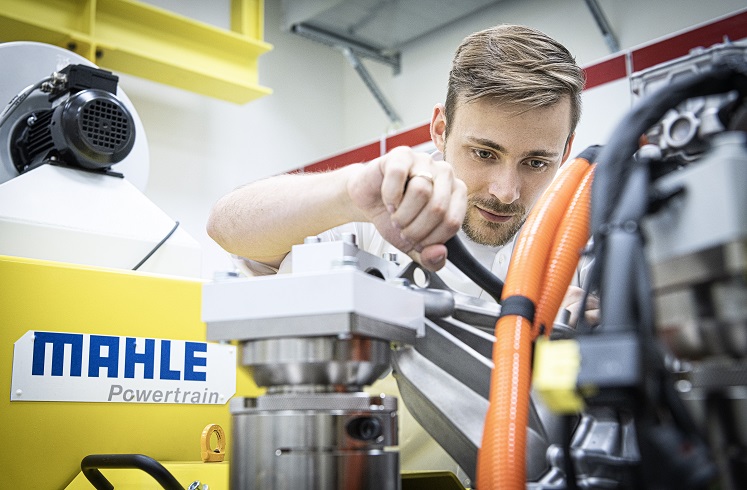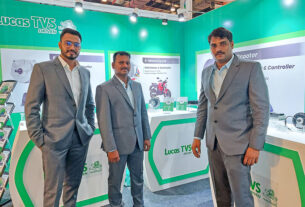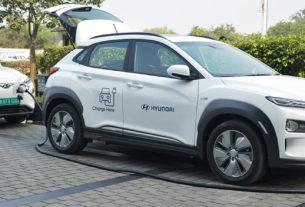The company has invested around EUR 3 million in new test bench in Stuttgart for testing and development of e-axles and e-drive units for electric and hybrid vehicles.

MAHLE has commissioned a test bench for electric drives in Stuttgart, Germany. This equipment will be used to develop and test e-axles and e-drive units for a wide range of electric and hybrid vehicles. The first test on a unit was successfully performed on behalf of a customer just a few days ago. MAHLE has invested around EUR 3 million in the new facility. The e-test bench marks another milestone in MAHLE’s technological Transformation.
“With the commissioning of the test bench, MAHLE continues the targeted expansion of its global range of services for e-mobility,” says Dr. Martin Berger, Vice President Corporate Research and Advanced Engineering at MAHLE. “Both our customers and our developers can now benefit from an ultramodern facility, which is one of only very few in Germany.”
In future, the new e-test bench in Fellbach will be used on behalf of international customers to carry out functional development work, simulate highly dynamic, transient modes of operation, perform efficiency measurements and torque vectoring, and simulate wheel slip scenarios. Operating map application and data population, testing of high- and low-voltage systems, and the investigation of thermal influences are also among the scope of services. Also, MAHLE components can be tested in the context of a whole system there.
The test facility includes an e-axle unit consisting of two oppositely mounted load machines equipped with permanent-magnet synchronous electric motors. Thanks to a nominal power handling of 350 kW per dynamometer and an impressive peak torque handling capacity of 8,400 Nm (7,000 Nm continuous torque), the setup boasts formidable performance data. Separate battery simulators for applications ranging from 48 V to 1,000 V and a high-speed power analyzer system allow for performance mapping, performance characterization, and efficiency studies to be carried out.

In addition, the new facility has a high-performance thermal conditioning system that provides a temperature range from –30oC to +130oC for the accurate simulation of vehicle operating conditions. This ensures that the drives tested in the facility will function reliably under the widest variety of climatic conditions around the world. The time an e-drive spends on the test bench depends on the specific customer requirements and ranges from around 200 hours to test individual functions through to a whole year when endurance testing is required.




